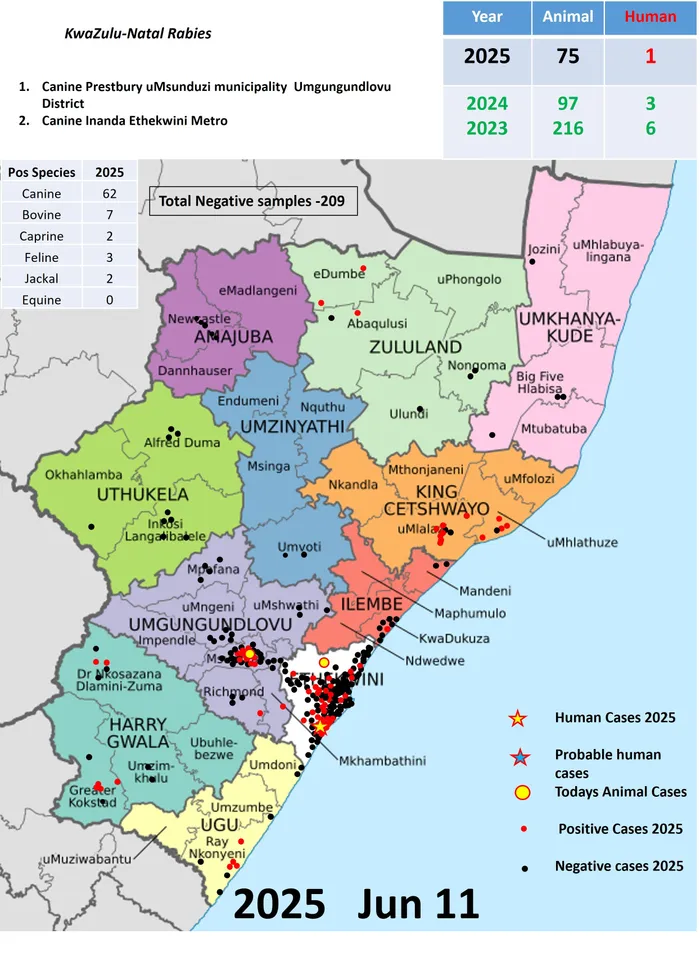
A map highlighting the areas most affected by rabies up until June 2025.
Image: KZN Department of Agriculture.
KWAZULU-NATAL has confirmed its first human rabies case of the year, as authorities raise the alarm over a growing outbreak that has already affected 75 animals across the province.
While the numbers remain lower than in previous high-risk years, officials warn the trend is deeply concerning and could worsen without urgent public cooperation and vaccination efforts.
Vusi Zuma from the provincial Department of Agriculture says they will renew their campaign to get the situation under control. He says the rabies vaccination team is currently also dealing with the outbreak of Foot and Mouth Disease in the province.
“The increasing rabies cases are worrying, but we will intensify our vaccination campaign. We simply can't let it reach the numbers we had in previous years,” said Zuma.
He made an urgent appeal for community support, saying that the Department would increase their visibility and work especially in the “red zone” areas where the number of infections were generally higher. “You know when we are coming, so please bring your dogs to be vaccinated.”
But Zuma also stressed that crime was a major factor affecting their work, especially in Wentworth, Umlazi and Inanda. Previously, a number of official vehicles have been hijacked, and although the police often accompanied their teams, it was not always possible for them to be on site. He said it was in the communities’ interest to protect their teams.
“We are worried about the high number of hijackings. Please, this is a state resource, and if you steal a car you steal your resource. So cars should not be stolen and they should not injure our people.”
“Our veterinary services have been a target for years now. So it's been a trend, but people must try to work with us, particularly in those areas where they've got community forums. Forums must protect the staff of the department at all times.”
Earlier this year, the KZN Rabies Unit confirmed that there had been a dramatic decline in the number of infections since 2021. Zuma said during that period almost 270 cases were repoted. In 2024, there were 97 infected animals and three humans; in 2023, there were 216 animals and six humans infected with rabies in KZN.